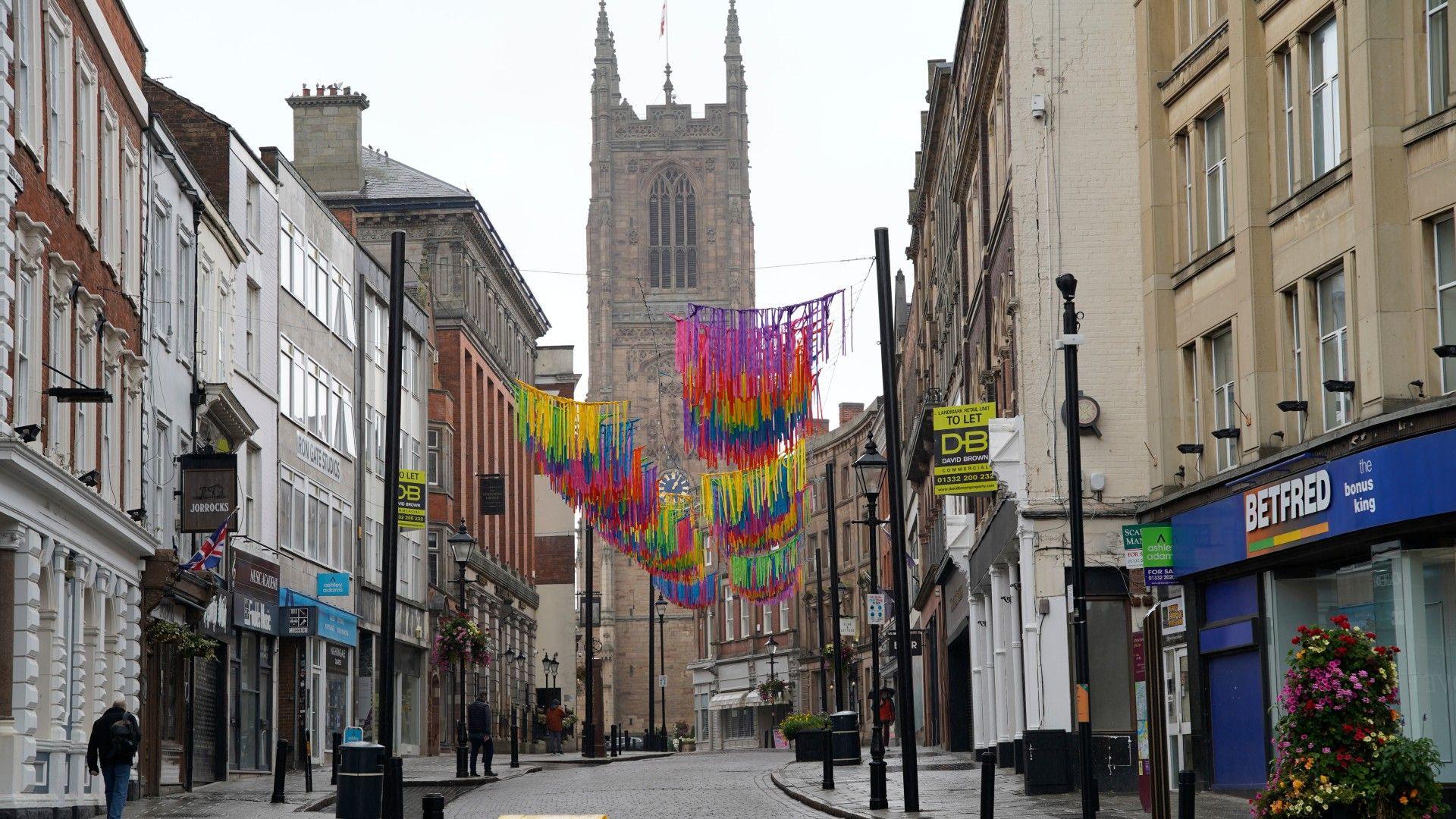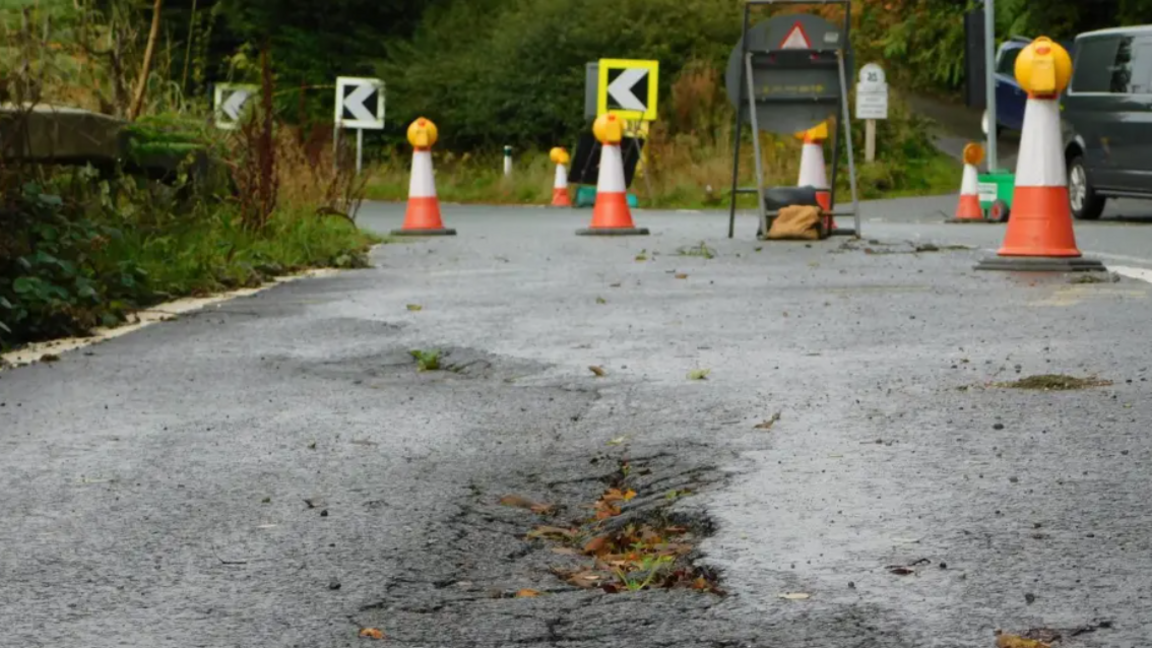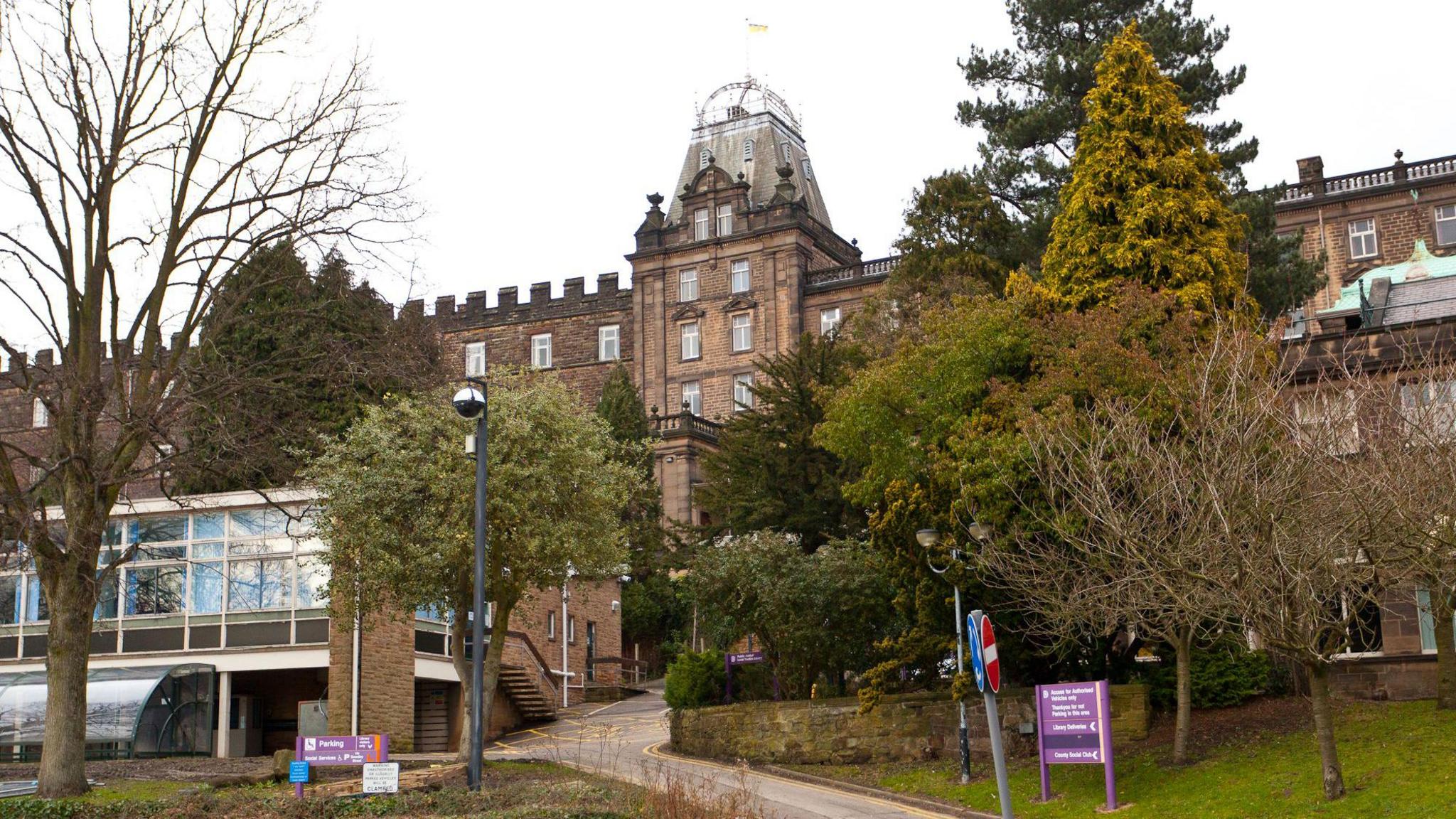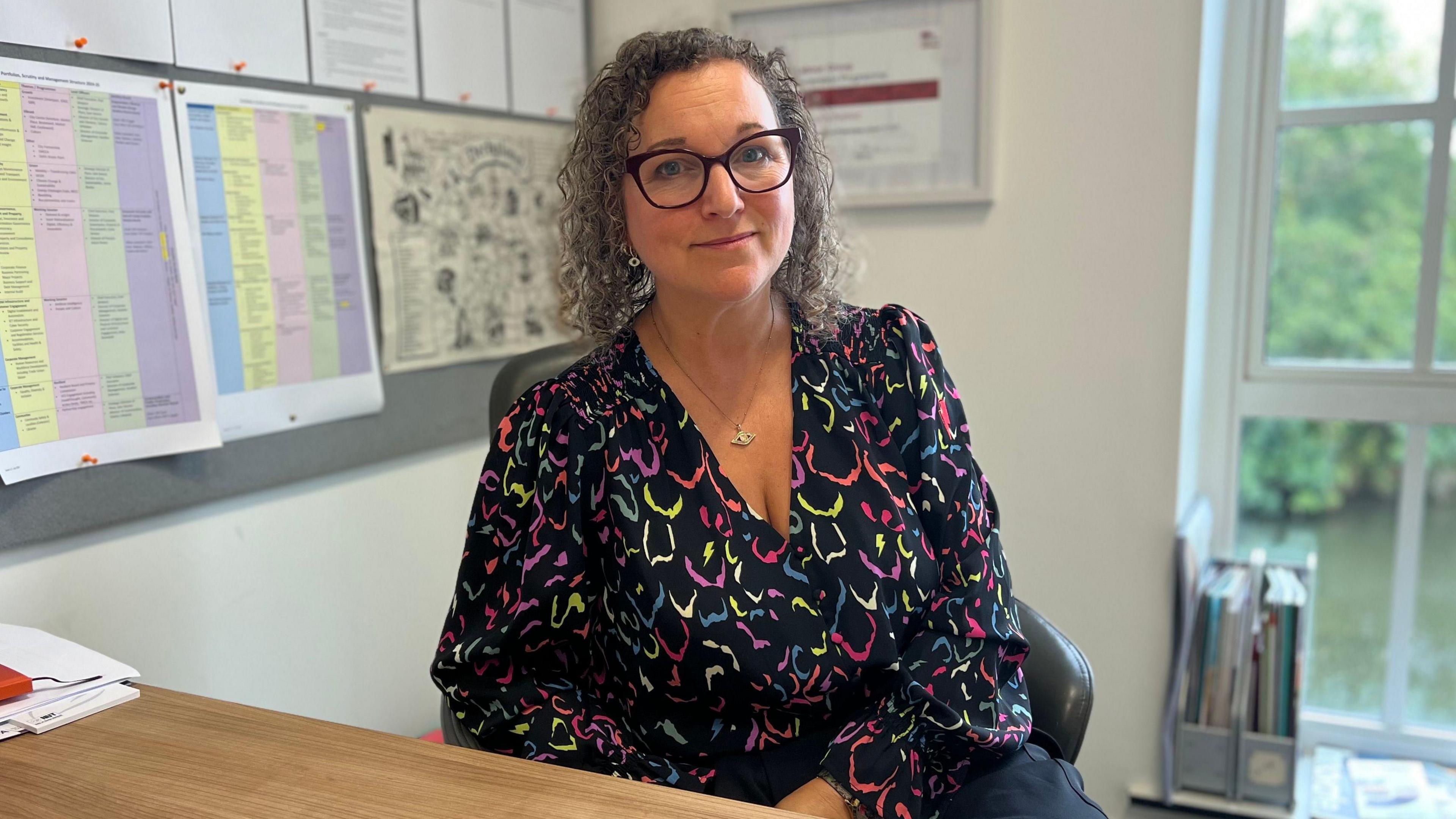Six things in Derbyshire to watch in the Budget

Senior council leaders in both Derby and Derbyshire will be watching the Budget closely
- Published
Like the government at Westminster, both Derby City Council and Derbyshire County Council have warned of the "difficult decisions" they're facing because of the state of their finances.
Senior leaders will be watching the Budget closely for action in a number of particularly pressurised areas.
Here are six key issues to look out for.
Landslips

Landslips are a particular problem for Derbyshire's highways teams
The county council has been lobbying the government for a Landslips Fund, so that the authority can apply extra money to fix the 200 Derbyshire currently has.
"Our highways budget from the government for road maintenance is around £27m a year," says the Conservative leader of the council, Barry Lewis.
"With some landslips costing more than £1m to fix – the Snake Pass being a good example – we just don't have the money we need to keep these roads open and are strongly calling for extra funds in this area, to include more money for general highways maintenance."
Transport
The future of the long-promised A38 improvement works is a particular concern for South Derbyshire. It's part of the transport secretary's infrastructure review, external, which is due to report back around the same time as the Budget, given it has fed into the chancellor's spending decisions.
However, even if we don't hear about the outcome on Budget day itself, a hint of what's to come could be seen by the kind of transport settlement offered to the East Midlands' regional mayor.
The £1.5bn in transport funding agreed for the East Midlands Combined Authority under the previous government has not been confirmed by the new government.
"That does make people nervous," a senior figure on the East Midlands Combined Authority tells the BBC.
"The government could say, we don't need to fund these specific projects [like the A38] and the £1.5bn... using that as an excuse to cut funding."
Housing

Councils are calling for longer-term funding settlements in many areas, such as housing
Many Derbyshire leaders have told the BBC of the need for a long-term, three-year funding settlement to improve planning and financial stability.
But one key area some say would particularly benefit from this, is the ability to plan for more housing, especially the need to build more affordable homes.
Labour-run Amber Valley Borough Council in particular is calling for this, with its leader saying it'll help them achieve "a key objective to deliver council-owned housing at affordable rents".
The council is currently in the process of releasing its first affordable homes for local use in decades.
Social care
The future of grant funding for crucial areas like social care could be key.
Grants are one of the three main areas of local government funding, but the nature of grants lacks permanency for many councils.
Derbyshire leader Lewis says adult care demand is rising "exponentially", and one-off grant funding no longer being available is increasing costs further.
Children's services in Derby in particular are made up of a lot of grant funding. Adult care is also supported with additional grant funding, and the council isn't sure how this will change in the future.
Given the massive pressure social care puts on both the city and county council at the moment, only having temporary guarantees of funding will make it more difficult for them to stay financially stable.
Culture and regeneration

Tony Butler, the executive director of Derby Museums, has signed an open letter calling for emergency government funding for the nation's most "at-risk" museums
Town centre regeneration was a key drive behind the previous government's levelling up funding, and most of those projects that successfully bid for funding in the region are pretty much nailed on.
Erewash, however, is waiting to hear about the fate of £5m it was promised for cultural spending by the previous chancellor Jeremy Hunt at the Budget in March this year.
The borough council's Labour leader James Dawson said at the time the money was "sorely needed".
Derby Museums are also signatories to a letter from Civic Museums, calling for an emergency cash injection to keep them afloat. They want £400,000 from the chancellor to allow them to break even next year.
Homelessness
Housing homeless families in temporary accommodation is an area the city council recently identified as a "significant new pressure".
The BBC recently revealed that annual costs for the city council to house families in private temporary accommodation like hotels and Airbnbs have recently soared to almost £5m.
The big reason councils are facing ballooning costs here is the government's housing subsidy, which doesn't allow authorities to claim back costs if they're using unregistered housing providers.
This is the money the government pays local authorities in the form of a subsidy to administer housing benefits.
With demand soaring though, often councils find they have no choice but to resort to these providers.
Leaders say they would welcome the removal of the subsidy cap, which would ensure councils are fully funded for the cost.
Get in touch
Tell us which stories we should cover in Derby
Follow BBC Derby on Facebook, external, on X, external, or on Instagram, external. Send your story ideas to eastmidsnews@bbc.co.uk, external or via WhatsApp, external on 0808 100 2210.
Related topics
- Published12 September 2024

- Published4 September 2024
